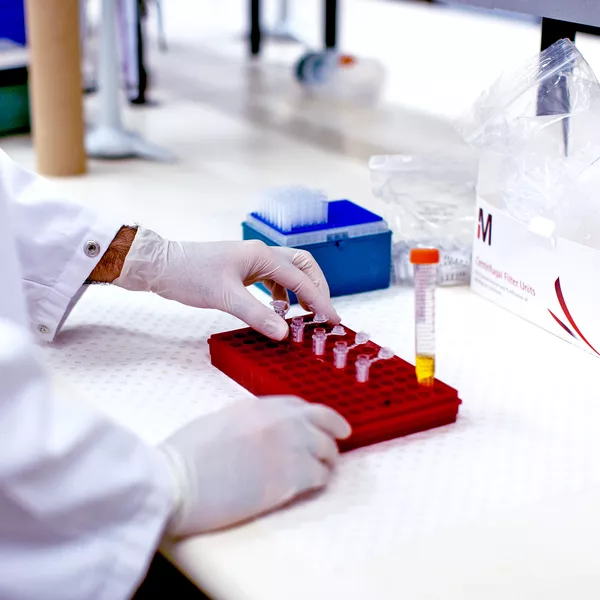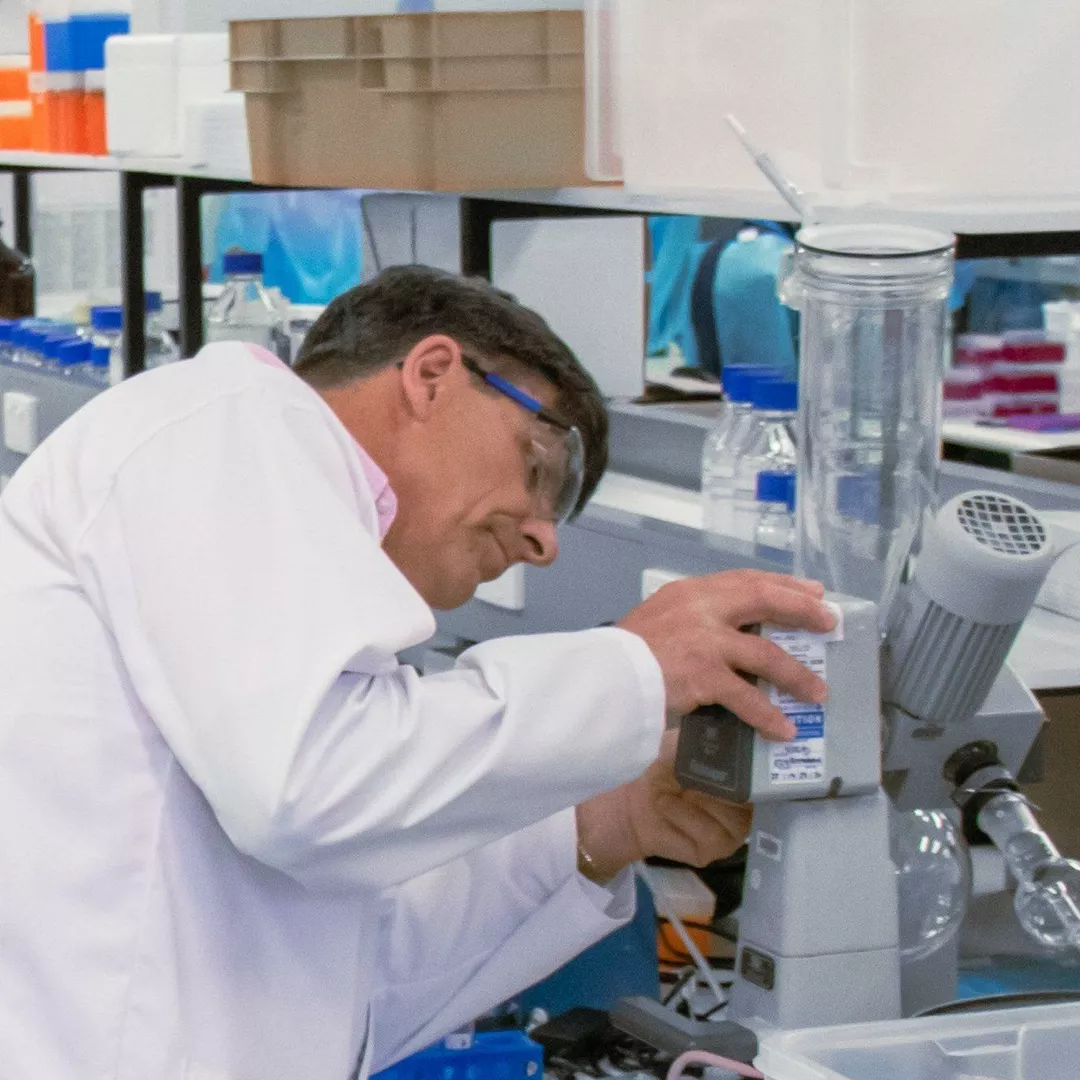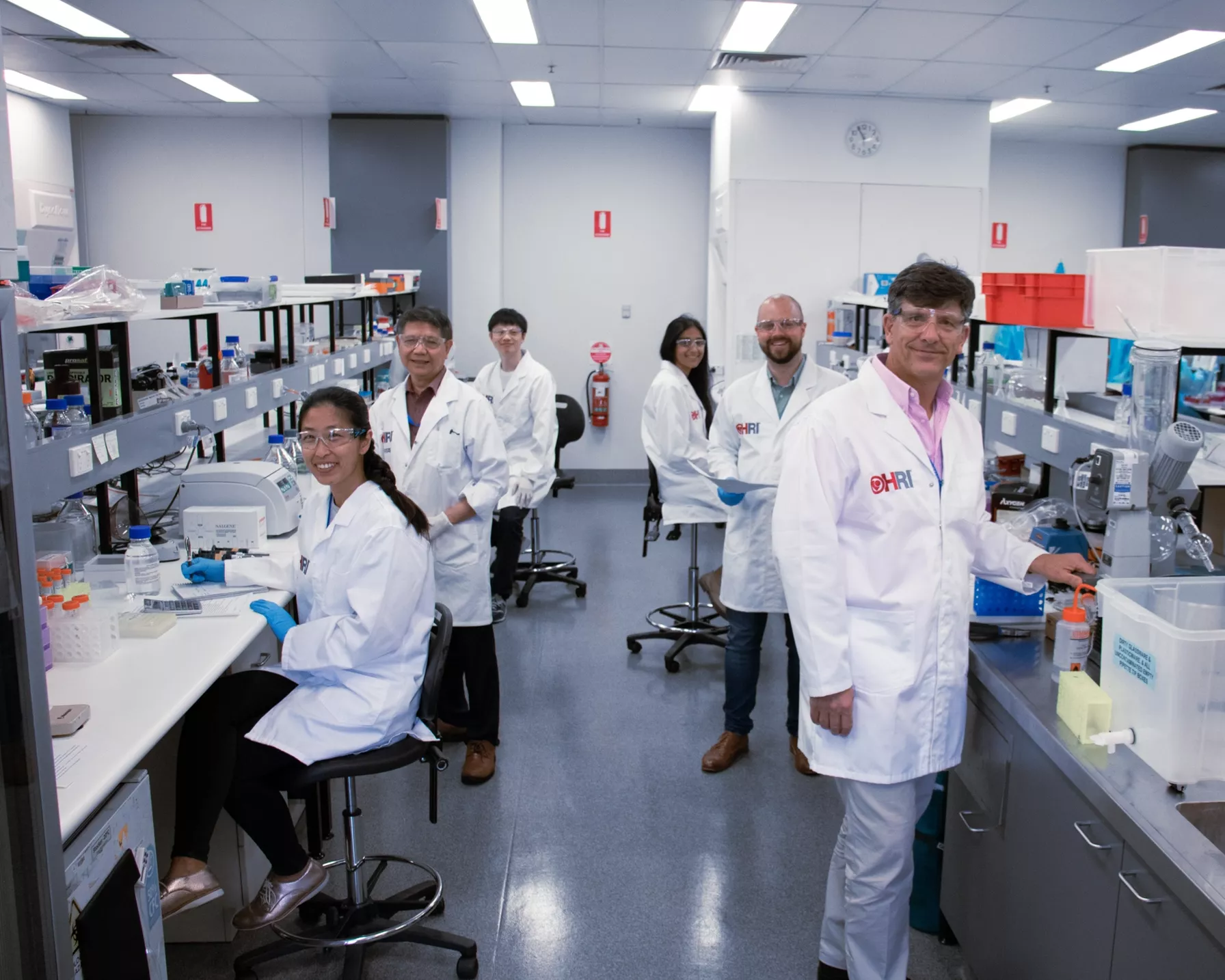
Researchers at the Heart Research Institute (HRI) are appealing to the public to help fund research that could prevent up to 3,650 Australians dying of heart attack each year.
The research team, led by Professor Roland Stocker, is working on creating a world-first: a novel diagnostic test to help identify and potentially treat people who are at high risk of a heart attack due to the presence of unstable plaque in the arteries.
The underlying cause of a heart attack is a build-up of plaque composed of cholesterol and inflammatory cells on the inside of the arteries.
Prof Stocker was due to retire when he and his team made the groundbreaking discovery of the inflammatory enzyme responsible for causing unstable plaques in laboratory models. The researchers demonstrated that blocking the activity of the enzyme with an inhibitor or eliminating the enzyme completely, prevented unstable plaques from being formed. Their research was published in the European Heart Journal in 2018.
Prof Stocker’s team was able to identify unstable plaques in laboratory models by ‘lighting up’ the inflammatory enzyme with a dye, and then using an MRI scan to detect whether there are dangerous levels of activity in the arteries.
Professor Roland Stocker and the Arterial Inflammation and Redox Biology Group at HRI
“Our research has taken place in laboratory models, and we now want to conduct clinical trials to understand if we can block unstable plaques from rupturing in high-risk patients,” Prof Stocker says.
“There are ways to detect and treat stable plaques before they restrict blood flow, but the same is currently not the case for unstable plaques.
“Unstable plaques are prone to rupture even before they are large enough to obstruct blood flow,” Prof Stocker explains. “Rupture of an unstable plaque can give rise to a blood clot that can limit, or even completely block, the flow of oxygen-rich blood to the heart, the brain and other parts of the body. When the blockage occurs in one of the two main coronary arteries that supply blood to the heart, it results in a heart attack.”
“There are currently no simple, non-invasive tests available to specifically detect unstable plaque,” Prof Stocker says. “This means that most people will only discover they had unstable plaque after experiencing a heart attack. It also means that we cannot and do not know whether existing or new drugs provide a treatment option for unstable plaque.
“The first step will take 18 to 24 months, to ensure the inhibitor blocks the inflammatory enzyme activity in human plaque,” Prof Stocker says. “Research can then proceed to testing whether the drug can decrease inflammation in plaque and improve heart function.”
HRI’s CEO, Dr Stephen Hollings, says the organisation needs $1.2m to move Prof Stocker’s research to the next stage.
“HRI is a not-for-profit and receives some government funding, but we rely on the community for 80 per cent of our funds,” Dr Hollings says. “We hope this fundraising appeal will enable the research team to test their discovery on humans and show we can detect and prevent heart attacks outside lab models. Ultimately this would save hundreds of thousands of lives around the world each year.”
Make a donation
Related research areas



